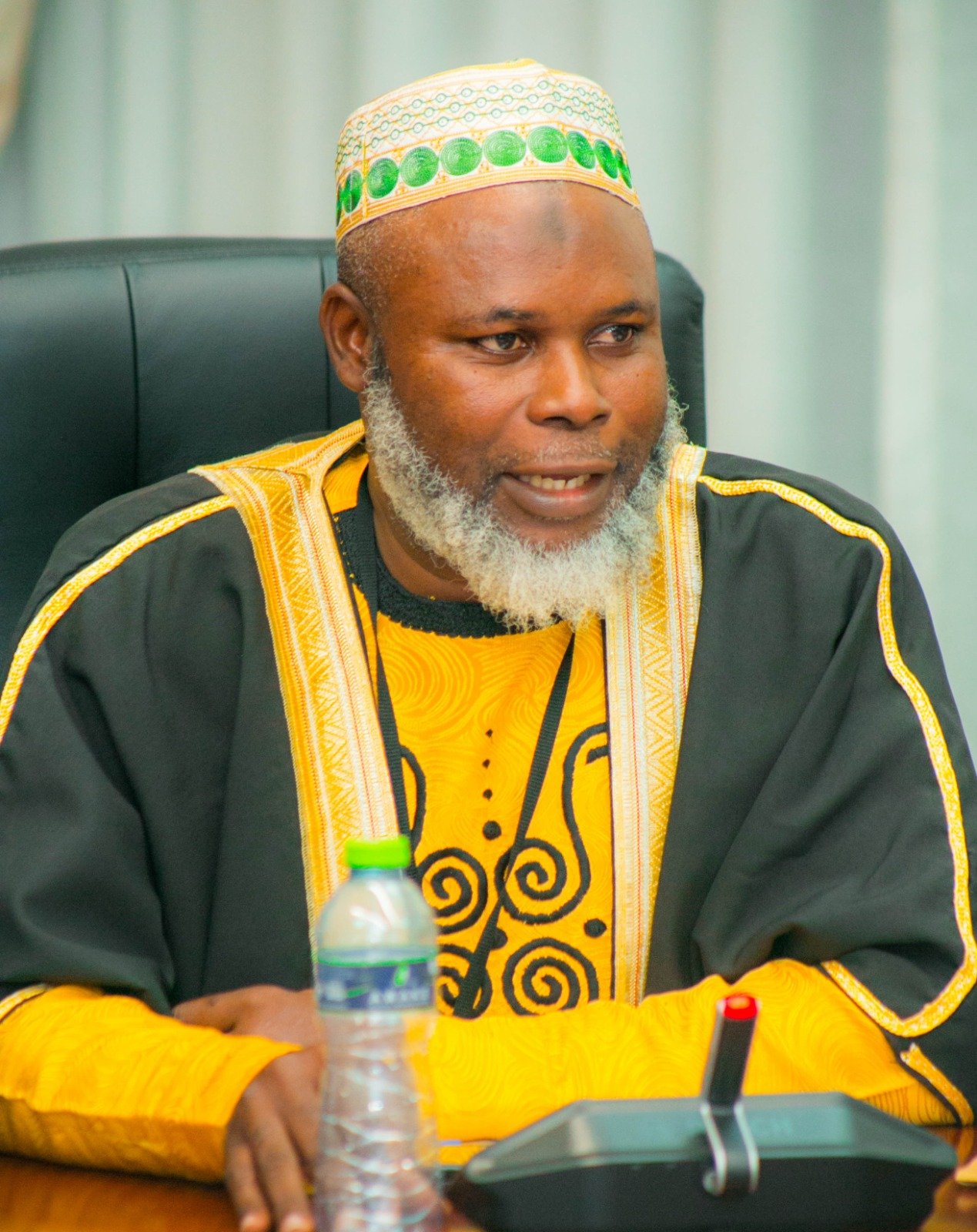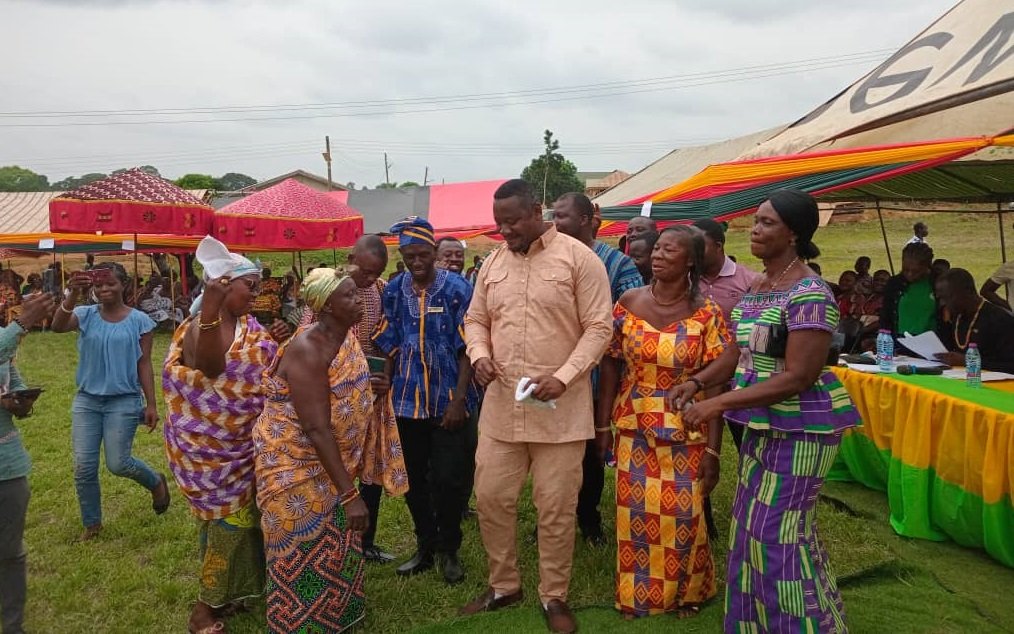Fruitful Living
Association of Methodist Traditional Rulers unveiled
The Northern Accra Diocese of the Methodist Church, Ghana on Wednesday inaugurated an Association of Methodist Traditional Rulers with a six-member interim executives in Accra.
The executive members are Nii Kojo Nseni Mankata IV, (Ga State Asafoatse) as the Chairman; Nana Addo Kuma I, (Ankobeahene of Akuapim Ahwerease)- Secretary; Naa Okailey Ajorbo I, (Taifa Manye)-Treasurer; Nana Abena Nyantekyiwa I ( Nkosuohema of Ejisu Onwe)- Organiser; Naakye Dede Amoakwa I (Ankobeahema of Awutu Mankessim) -Ex-officio and Very Rev Isaac Kwam Enninful -Gbawe Chaplain.
At a colourful inaugural ceremony, the Diocesan Bishop, Rt Reverend Professor Joseph M.Y. Edusa-Eyison, who led them to swear the Oath of Secrecy said the inauguration of the association was to bridge the gap between traditional leaders and the church.
He said it also formed part of the church’s vision to provide chaplaincy services to chiefs, queens and royals in the country to draw souls for Christ.
Rev Edusa-Eyison emphasised that the Methodist Church, Ghana recognised the contributions of Christian traditional rulers and authorities to the church’s evangelistic enterprise and desired as a Church to leverage that for growth.
“Your invaluable contribution as a significant agency of development, providing the church with land, spaces for its business and an enabling environment for the church to serve the creator in peace is highly commendable,” he added.
Rev Edusa-Eyison said unlike the perception of others that tradition was fetish, the church believed that tradition and Christianity must coexist for healthy exchange of life.
He commended the executive members for accepting the responsibility to champion the course of the gospel in addition to their traditional duties, and expressed optimism that their work would help grow the Methodist Church.
The Minister of Chieftaincy and Religious Affairs, Stephen Asamoah Boateng, commended the Methodist Church, Ghana for the initiative and urged other churches to take a cue from it to enhance the development of the nation.
He said the ministry was mandated under the chieftaincy Act 2008 Act 759, to develop effective interface between Government, religious bodies and civil society on matters relating to Chieftaincy and Religious Affairs for the promotion of peace and good governance.
He said as part of the mandate, the ministry had drafted a proposed National Policy on Religion to protect the rights and freedoms of individuals regardless of their beliefs or non-beliefs.
The policy, he said was under consultation by stakeholders in the various 16 regions and urged the church to get involved in the discussion for economic development.
The Ga Mantse and President of Ga Traditional Council, Boni King Tarkie Teiko Tsuru II who was the Special Guest of Honour said “righteousness exalt a nation and nation cannot be blessed if the king does not see God as supreme, adding that “any leadership that does not recognise God in the scheme of things absolutely is flawed and had a defeatist idea.
The chairman of the executive members, Nii Mankata IV on behalf of the members thanked the church for recognising traditional leaders and their roles in the development of the church and the country at large.
By Vivian Arthur
Fruitful Living
Institution of Marriage in Islam (Pt.3)

Regarding sexual intimacy, it is also prohibited for a wife to demand money or gifts before allowing her husband to engage in sexual relations. Islam views this as a form of exploitation and sin. A marital relationship must be based on mutual love, respect, and affection rather than material gain.
Prohibition of sexual intercourse during menstruation
Islam has clear guidelines regarding sexual relations during certain times, particularly when a woman is menstruating. The Qur’an prohibits sexual intercourse during menstruation, stating:
“And they ask you about menstruation. Say: ‘It is harm, so keep away from women during menstruation. And do not approach them until they are pure. And when they have purified themselves, then come to them from where Allah has ordained for you. Indeed, Allah loves those who are constantly repentant and loves those who purify themselves’” (Qur’an 2:222).
This verse emphasises the importance of refraining from sexual activity during menstruation due to physical and spiritual reasons. However, all other forms of affection and companionship are allowed, and husbands should continue to care for their wives during this time with love and respect.
Islamic law encourages cleanliness and personal hygiene, especially in matters related to physical intimacy. After the menstruation period ends, it is recommended that the wife perform ghusl (ritual purification) before resuming sexual relations with her husband.
Rights of Children on Parents
Islam emphasises the rights of children on their parents, as marriage is the foundation of family life. Parents are obligated to provide their children with proper care, education, and moral guidance. The Qur’an states: “O you who have believed, protect yourselves and your families from a Fire whose fuel is people and stones…” (Qur’an 66:6).
This highlights the parents’ responsibility to raise their children with a strong sense of morality and faith. Children have the right to a good name, religious upbringing, and education, and they must be treated with fairness and love.
In Ghana’s law, there is Children’s Right Act, Act 560 (1989) which states among other things,
• Section 4, Right to Name, Nationality and secure a Birth Certificate for the child
• Section 6(3) (a&b), protection from neglect, provide good guidance, care etc
• Section 8(1&2), Right to education and wellbeing (medical care, diet, clothing, shelter).
How Do Married Couples Resolve Their Differences in Islam?
Islam provides clear guidelines for resolving marital conflicts in a just and compassionate manner.
The Qur’an instructs that in the event of marital discord, both parties should seek reconciliation:
“If you fear dissension between the two, send an arbitrator from his people and an arbitrator from her people. If they both desire reconciliation, Allah will cause it between them” (Qur’an 4:35).
The goal is always to preserve the marriage and restore harmony. If reconciliation is not possible, Islam permits divorce as a last resort, but it is considered the most disliked permissible act in the eyes of Allah (SWT).
Rewards of Marriage in Islam
Marriage in Islam is not only a social institution but also an act of worship that brings great rewards. The Prophet Muhammad (PBUH) said: “When a man marries, he has fulfilled half of his religion, so let him fear Allah regarding the remaining half” (Bayhaqi, Shu’ab al-Iman).
Married couples are rewarded for fulfilling their marital responsibilities, showing kindness to each other, and raising righteous children who contribute positively to society.
Scholarly Thoughts About Marriage in Islam
Islamic scholars, such as Imam Al-Ghazali, have discussed marriage as a means of controlling desires and fulfilling one’s spiritual obligations. Modern scholars like Sheikh Yusuf Qaradawi also stress the importance of mutual respect and understanding in marriage, ensuring that both partners can grow spiritually and emotionally within the marriage.
Conclusion
In conclusion, marriage in Islam is a divinely ordained relationship based on mutual love, respect, and responsibility. By following the guidance of the Qur’an and Sunnah, and observing the legal frameworks in place, such as Ghana’s Mohammedan Ordinance, we can establish strong and harmonious marriages that contribute to the moral and spiritual development of society. May Allah (SWT) guide us to fulfill our marital responsibilities with sincerity and love.
The Writer is Kpone Katamanso Municipal Chief Imam, Democracy and Governance Law Student, UCC, Member of Ghana National Association of Certified Counsellors Certified by Ghana Psychology Council
References:
1.Qur’an, Surah Ar-Rum (30:21)
2.Qur’an, Surah An-Nisa (4:34, 4:4, 4:19, 4:35)
3.Qur’an, Surah Al-Baqarah (2:187, 2:221, 2:222, 2:223)
4.Qur’an, Surah At-Tahrim (66:6)
5.Ibn Majah, Hadith 1845, 1905
6.Tirmidhi, Hadith 1162, 1084
7.Bukhari, Hadith 5090
8.Children’s Right Act, Act 560 (1989)
9.Bayhaqi, Shu’ab al-Iman
10.Al-Ghazali, Ihya Ulum al-Din
11.Qaradawi, The Lawful and Prohibited in Islam
Fruitful Living
Adansi North DCE marks birthday on Farmers’ Day

It was a momentous day for the Adansi North District Chief Executive, Eric Kwaku Kusi, last Friday November 8, as the 40th National Farmers Day district level celebration held here at Adansi Adokwai coincidentally fell on his birthday.
On a low-key, Mr Kusi momentarily took to the floor, to exhibit his dancing skills responding to cheers of “Happy Birthday to you” from the audience, to which he also responded with a gesture of thanks and praises to God, as he stepped out to address the gathering.
He was joined on the dancing floor by the assembly members singing praises to God for the life of their indefatigable DCE.
In his address, Mr Kusi commended farmers in the Adansi North and the country as a whole “who tirelessly cultivate the land to feed all of us in our communities.”
He said the government realising the important role agriculture played in the economy and the challenges facing farmers due to the effects of climate change was rolling out initiatives and policies to support climate-resilient agriculture, including agriculture insurance programme for farmers.
In all 16 farmers were awarded various prizes for their contribution to food sufficiency in the country.
Francis Appiah, 41, who hails from Adokwai was adjudged the District Best Farmer for 2024, and took home a tricycle and other assorted items. The first runner-up prize went to Sakyi Kwabena also from Adokwai and the second runner-up went to Kwame Gyamera from Dompoase.
From Alhaji Salifu Abdul-Rahaman, Adansi Adokwai







